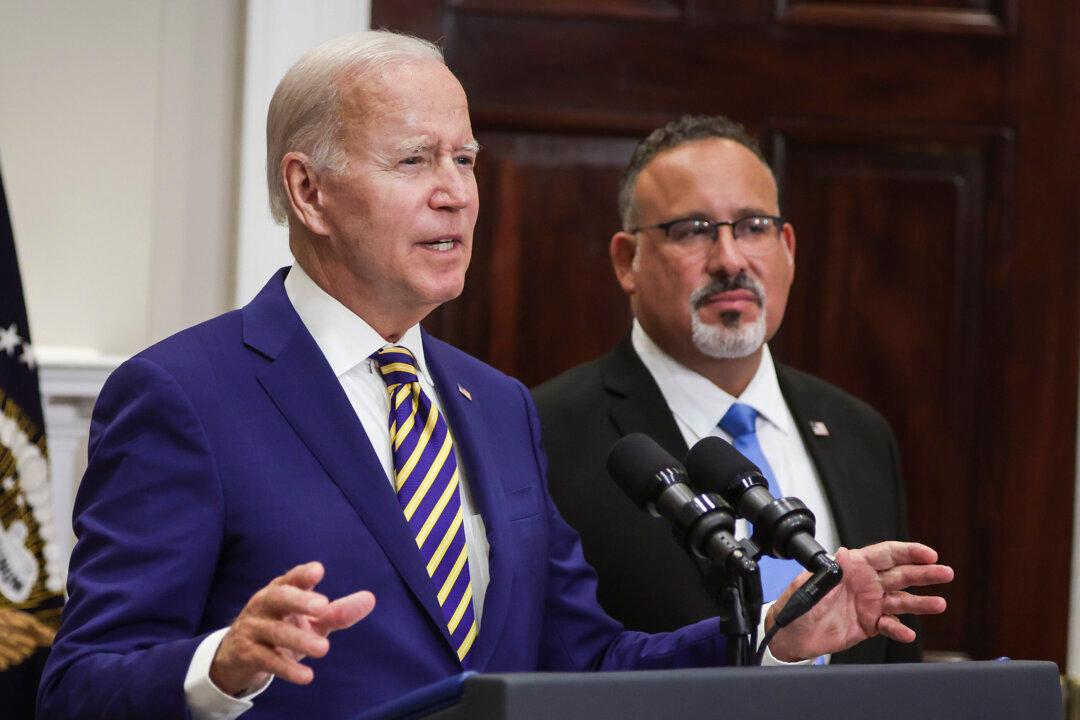President Joe Biden on Wednesday said he’s not sure whether the Supreme Court would block his plan to “forgive” hundreds of billions of dollars in federal student loan debt.
“I’m confident we’re on the right side of the law. I’m not confident about the outcome of the decision yet,” the president told reporters when asked whether he was confident that the nation’s highest court would rule in his administration’s favor.





